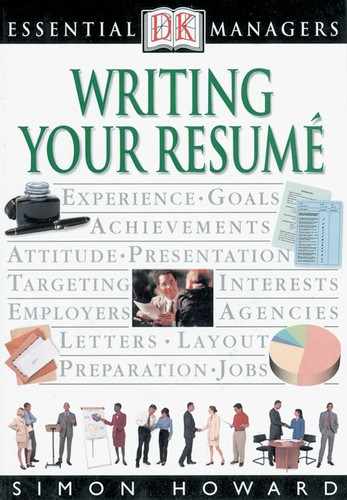Canvassing Employers
Approaching employers “cold” is a highly speculative strategy – you have no idea if they are currently recruiting. However, if you can target the right employers with the right proposition, they may express an interest in meeting you.
TIP
Include a career summary when making a speculative application.

Identifying potential employers
If you have conducted your career audit and set your career goals, you will be able to identify the employment sectors you would like to work in. A little more research will provide a list of potential employers. Most major employers will include recruitment information on their Web sites, and business directories can also provide useful background information.
Developing a proposition
When writing to any employer, you need to decide exactly what you want to do for them – and then tell them precisely. It is no use sending a resumé with an “I wondered if you might be interested” message. You need to tell them you want to work as an abc, for def reasons. You are qualified to do this because of ghi, and you want to work for them more than anyone else for xyz reasons. Confidence, determination, and flattery are all bound into one. Do not be too pushy, since the chances are they will not be actively recruiting; but express your interest in arranging an exploratory meeting.

TIP
State your goals, but do not limit yourself too much.
TIP
Keep a note of those employers who do not reply.
Deciding whom to contact
The right proposition needs to land on the right desk. Personnel or Human Resources departments will be the gatekeepers for current vacancies, but you cannot rely on them forwarding your letter to the right line manager. The best course of action is to identify the right person yourself and write directly to them. If you want to work for the marketing director, write to the marketing director. Be careful not to aim too senior; it is the recipient you are aiming to see; you do not want your resumé – and you – to be passed down the line.
Prompting a response
You should receive a polite acknowledgment to any letter you send. However, you cannot always count on it. When writing speculatively, consider saying that you will be making a follow-up call to find out if a meeting would be worthwhile. This demonstrates a positive attitude on your part, and may encourage a response.
TIP
Show you are motivated, without becoming a nuisance.
Questions to ask yourself
Am I using all the routes to a new job that are open to me?
Am I sending out the right sort of resumé to the right people?
Am I giving forms and questionnaires the same kind of detailed attention that I gave to my resumé?
Should I prepare myself for possible employer tests?
Am I coming across as highly motivated?
Filling out forms and questionnaires
Occasionally, an employer may respond with either an application form or a structured questionnaire – either is better than an outright “no.” Take some time to read these carefully before starting to complete them. If the form asks you focused, open-ended questions, think about what the employer is trying to find out – for example, are the questions looking for detailed evidence of your transferable skills? Blank sections of forms that ask you to provide “any other information” are a further opportunity for you to sell yourself. Use the analysis of your transferable skills and your career objectives as the basis for your response.
TIP
Find the name of the person who can give you the job you want.
TIP
Ensure your career summary is no more than 50 words.
Selling yourself to an employer
A sales letter is one of the most difficult business documents to write – and a speculative letter to a potential employer is precisely that. Your research may throw up opportunities, or recent press coverage may provide a lead, and an opening, for communication. Alternatively, start your letter with a powerful statement that headlines your own skills – for example, “Getting customers to pay on time is not easy, but I have spent 10 years doing precisely that.” You must then summarize the key elements of your resumé and why you want to work for that particular employer. Close with a proposition of what could happen next.
The recipient of this particular letter is not necessarily an experienced recruiter, but he will be aware of the needs of his part of the company. The letter states clearly why the applicant should be considered for a specific post.Writing a letter to a local employer

This letter came about as a result of trade press coverage. Being aware of what is going on in your field will open up possibilities to you and help you to talk confidently at interviews.Following leads

TIP
Keep copies of every cover letter you send.
TIP
Avoid using humor in your application – it may be misunderstood.
Do’s and don’ts
Do be patient, people you write to may be away or very busy.
Do be specific about what you want to do.
Do demonstrate your knowledge of a particular company and the industry.
Don’t be unrealistic, most people you approach will not be recruiting.
Don’t become despondent if you hear nothing.
Don’t become a nuisance.
